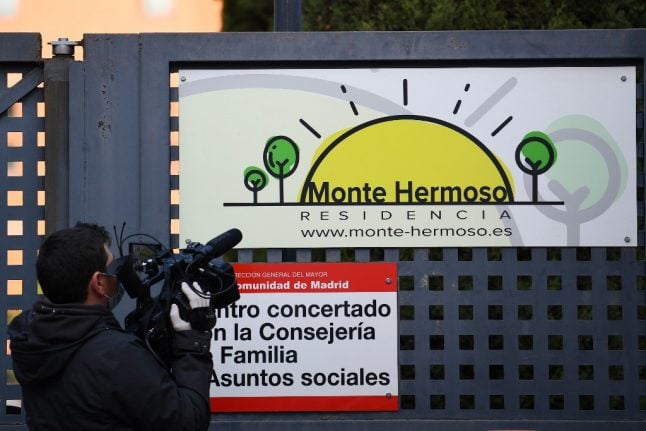The residential home has been named as Monte Hermoso, a privately-run centre near Madrid’s Casa de Campo which is home to 130 residents and also operates as a day centre.
The coronavirus has swept through the centre with some 75 people testing positive including members of staff.
Relatives raised the alarm after learning that residents were dying inside the care home without being taken for treatment at the hospitals.
Residential care homes and elderly day care centres across Madrid were put on lockdown on March 5after a spate of cases, days before the order was given to close the schools and later, to confine people to their homes.
On Tuesday it emerged that those residents with symptoms of suspected coronavirus at this particular care home had not been offered emergency medical treatment even when their conditions worsened.
Speaking to El Pais, a source at the home said the first suspicious death occurred two weeks ago but “by Sunday there were 10 bodies awaiting collection by the funeral home.”
A statement from the Monte Hermoso centre said that employees were doing everything possible to save lives. “On Tuesday the centre received oxygen equipment from regional health authorities, ill residents were transferred to hospitals, and workers from the San Carlos Clinical Hospital were sent in to help the staff.”
Prosecutors are investigating the deaths.
Madrid remains the focus of the epidemic that has swept across Spain, even as residents are confined to their homes. On Wednesday morning the Health Ministry reported a surge in cases with Madrid now reporting 5,637 cases, or 41 percent of the total infections in Spain.
The number of deaths in the capital rose to 390 deaths — around two-thirds of the national total of 558.
READ MORE:



 Please whitelist us to continue reading.
Please whitelist us to continue reading.
Member comments